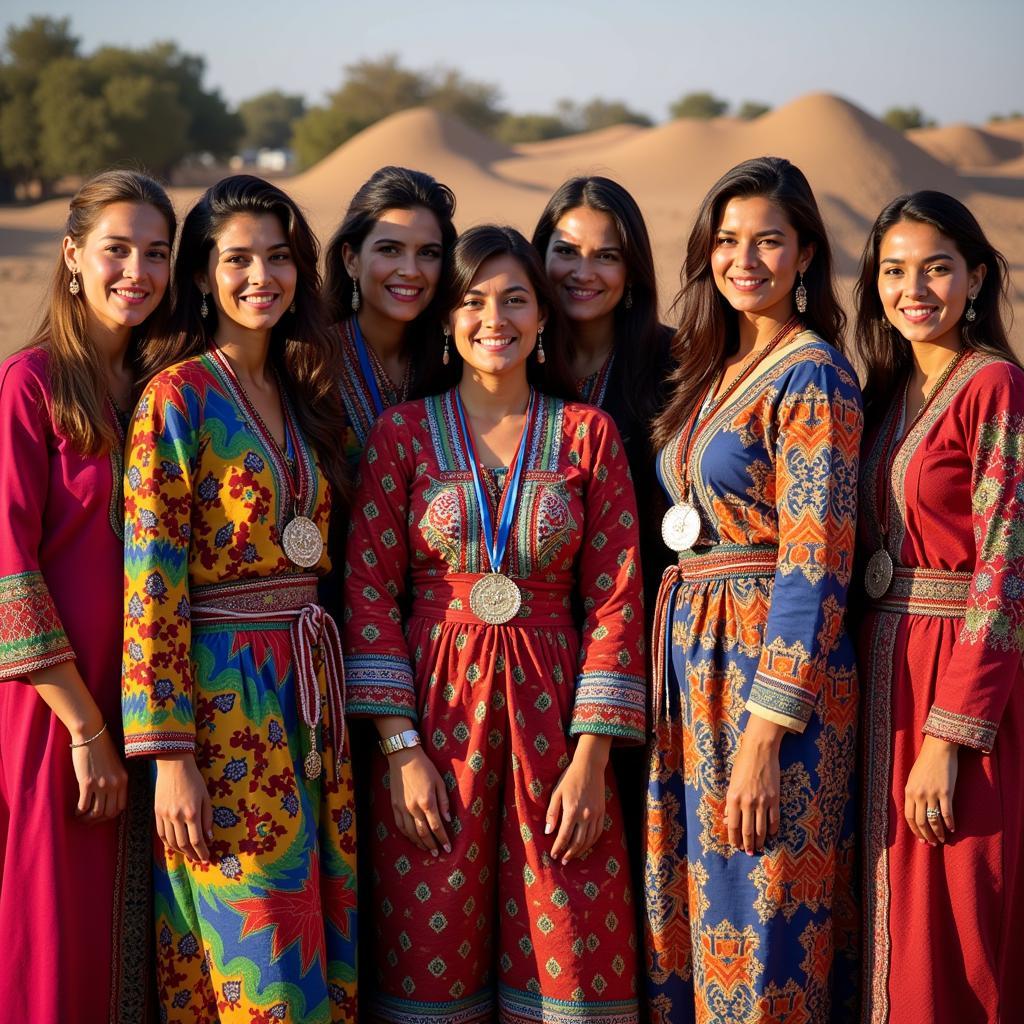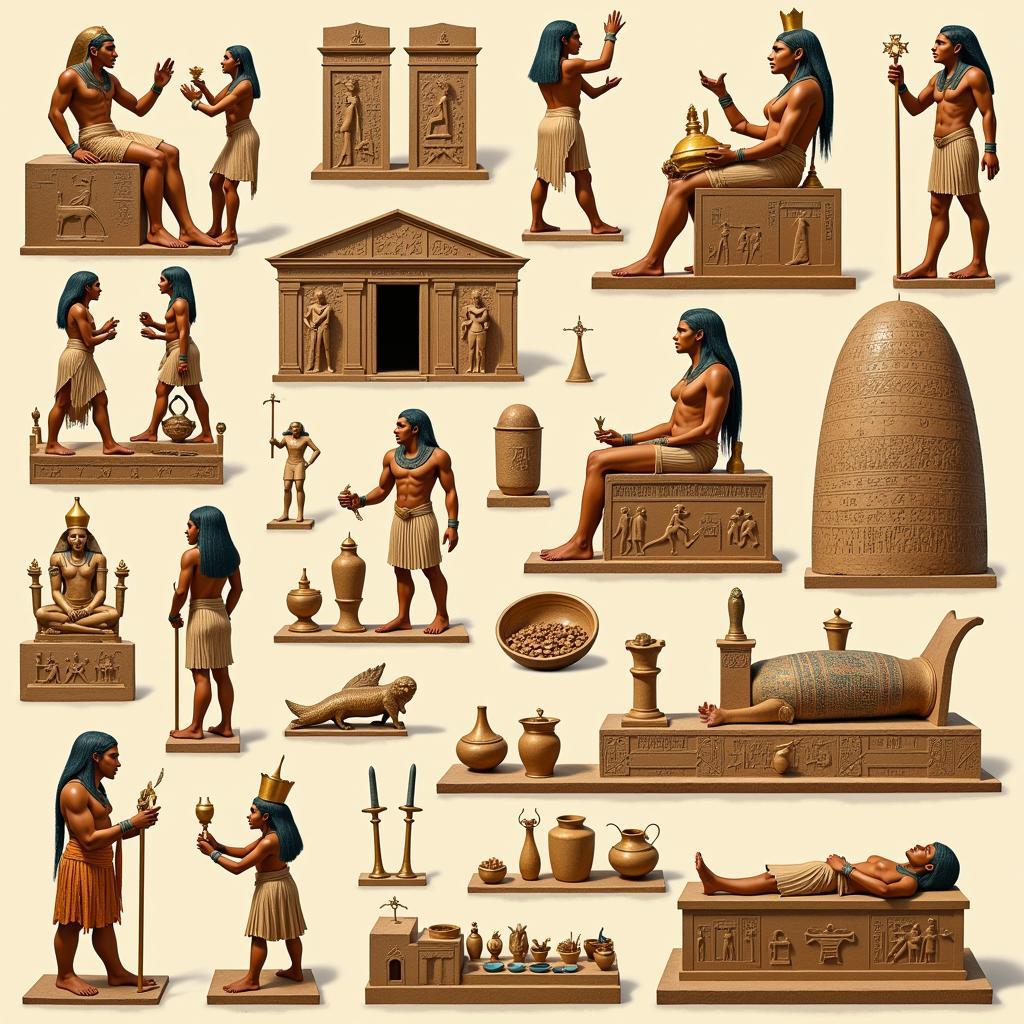The Significance of the African Child Belly in Culture and Tradition
The image of an African Child Belly, often round and full, is a powerful symbol deeply rooted in the cultural fabric of the African continent. While it may seem like a simple physical attribute, it holds profound meanings tied to beliefs, values, and societal perceptions of health, prosperity, and well-being, particularly among children.
 African Child Belly Celebration
African Child Belly Celebration
More Than Just Physical Appearance: Understanding the Symbolism
Across numerous African cultures, a child’s protruding belly is traditionally viewed as a positive sign, indicative of good health and nourishment. This perspective stems from historical contexts where food scarcity and high infant mortality rates were prevalent. A well-fed child, visibly evidenced by a rounded belly, represented the family’s ability to provide and care for their offspring, signifying prosperity and a hopeful future.
Furthermore, the perception of the child belly extends beyond mere physical health. It embodies a spiritual connection to ancestors and the land, symbolizing the continuity of life and lineage. A plump, healthy child represents the successful passing down of blessings and vitality from past generations to the present.
Cultural Practices and Beliefs Surrounding the African Child Belly
The reverence for the child belly manifests in various traditional practices across the continent. In some communities, specific foods and herbal concoctions are believed to promote a healthy, round belly in children, further emphasizing the cultural value placed on this physical attribute.
For instance, in certain West African cultures, mothers gently massage their babies’ bellies with shea butter or palm oil, believing these natural emollients promote digestion and contribute to a desirable physique. These practices are passed down through generations, reflecting deeply ingrained beliefs and cultural norms.
Challenging Western Beauty Standards and Perceptions
The traditional African perspective on the child belly stands in stark contrast to prevailing Western beauty standards that often emphasize slenderness and equate thinness with health and attractiveness. This contrast highlights the diverse cultural interpretations of body image and the importance of understanding and appreciating these differences.
It’s crucial to recognize that imposing Western ideals on non-Western cultures can be harmful and perpetuate unrealistic body expectations. Celebrating the beauty and significance of the African child belly encourages cultural sensitivity and fosters a more inclusive understanding of beauty across different societies.
The African Child Belly: A Symbol of Resilience and Hope
The image of the African child belly, though sometimes misunderstood, embodies a rich tapestry of cultural beliefs, traditions, and historical context. It serves as a reminder of the resilience of African communities in the face of adversity and their unwavering commitment to nurturing and safeguarding future generations.
By appreciating the cultural significance of the child belly, we gain a deeper understanding of the values and perspectives that shape African societies and challenge ourselves to embrace diverse definitions of beauty and well-being.
FAQs about the African Child Belly
1. Is the African child belly viewed negatively within African cultures?
No, traditionally, the African child belly is seen as a positive sign of good health, nourishment, and prosperity. It represents the family’s ability to provide for their children and signifies the continuity of life and lineage.
2. Are there specific cultural practices associated with the African child belly?
Yes, in some African cultures, mothers use traditional massages with shea butter or palm oil, believing these practices promote digestion and contribute to a healthy, round belly in children.
3. How does the African perspective on the child belly differ from Western views?
While Western cultures often associate thinness with beauty and health, many African cultures view a rounded belly in children as a positive attribute, reflecting different cultural interpretations of body image.
4. Why is it important to understand and respect different cultural perspectives on body image?
Cultural sensitivity and understanding are essential to avoid imposing our own biases and ideals on others. Appreciating the beauty and significance of different body images fosters inclusivity and respect for diverse cultures.
5. What does the African child belly symbolize beyond physical health?
The African child belly holds deeper cultural and spiritual meanings, representing a connection to ancestors, the continuity of life, and the passing down of blessings from past generations.
Need More Information?
If you’d like to explore more about African culture and traditions, we encourage you to check out our other articles on:
 African Children Playing Together
African Children Playing Together
For any inquiries or assistance, please don’t hesitate to contact us:
Phone Number: +255768904061
Email: kaka.mag@gmail.com
Address: Mbarali DC Mawindi, Kangaga, Tanzania.
Our dedicated customer support team is available 24/7 to assist you.



